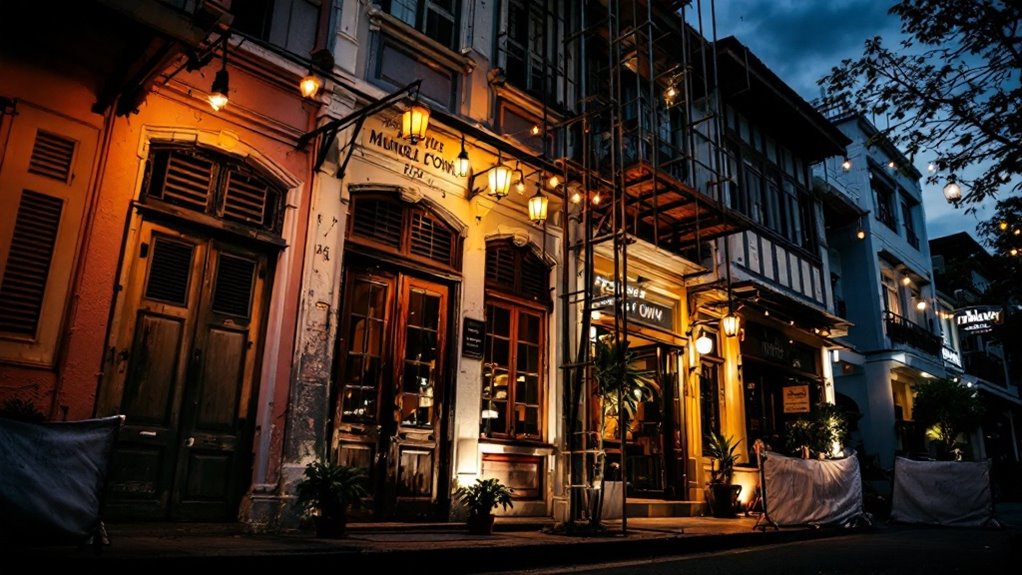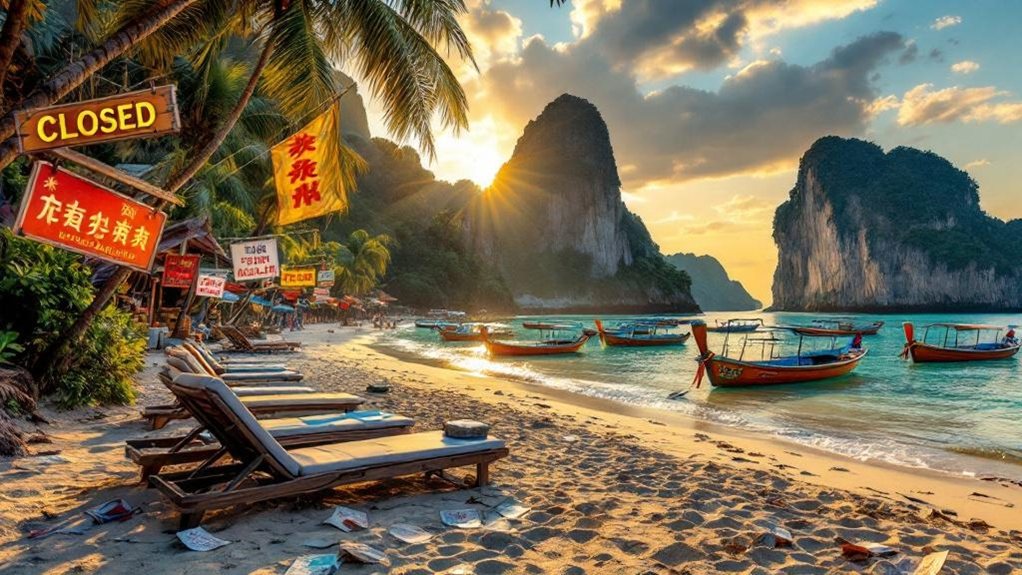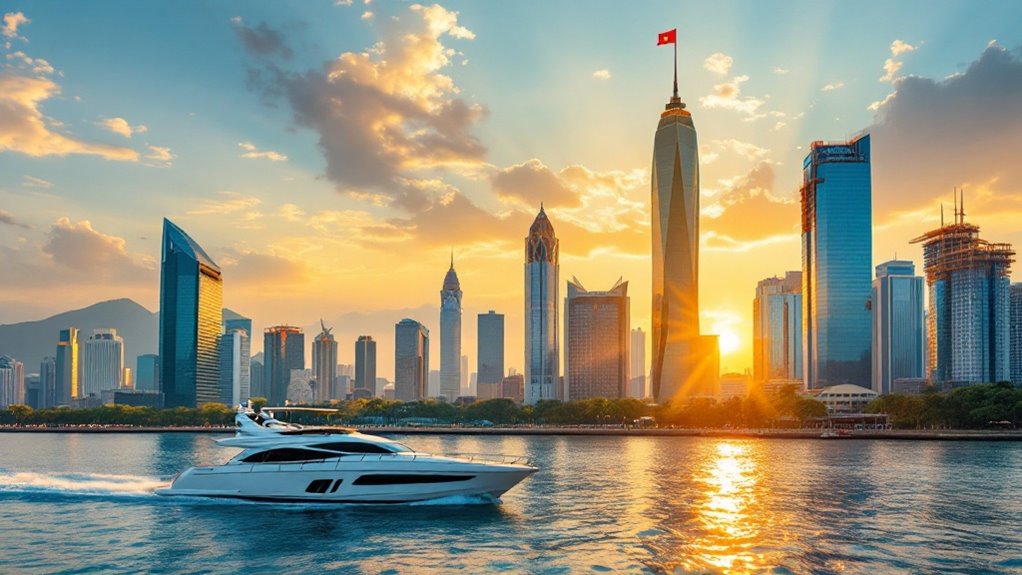Phuket Old Town is undergoing a strategic transformation with sustainable tourism initiatives, major infrastructure projects like the upcoming Hampton by Hilton Phuket Town, and increased public-private investment aimed at carbon neutrality by 2030. While these developments promise economic growth and improved public amenities, local authorities are implementing measures to prevent cultural dilution and over-commercialization, working to preserve traditional Sino-Portuguese architecture and authentic community life. As challenges persist around waste, water, and authenticity, further details reveal how these dynamics affect the district’s identity.
Amidst the rapid evolution of global tourism, Phuket Old Town stands at a crossroads, facing the challenge of balancing modernization with heritage preservation. The district has been positioned as Thailand’s pilot model for sustainable tourism, targeting carbon neutrality by 2030 through the adoption of renewable energy and systematic emission reduction. This initiative, endorsed by the Ministry of Tourism and Sports, aligns with broader national objectives of achieving carbon neutrality by 2050 and net-zero emissions by 2065.
However, the high initial costs of green technology have slowed progress, particularly for small and medium-sized enterprises, necessitating robust public-private partnerships to bridge funding gaps and drive adoption. With 70% of tourism operators in Thailand being SMEs, the need for accessible financing and tailored support is especially acute in Phuket Old Town’s sustainability journey.
High upfront costs of green technology hinder SME adoption, making strong public-private partnerships essential for funding and sustainable progress.
Expansion of tourism infrastructure is marked by the arrival of global hospitality brands such as Hampton by Hilton, introducing a 112-room property as Southeast Asia’s first mid-scale offering in Phuket Old Town. The Hampton by Hilton Phuket Town is scheduled to open in the third quarter of 2026, marking Hilton’s first Hampton by Hilton in Southeast Asia. The region is targeting 500 billion baht in tourism revenue for 2025, with upgraded infrastructure and enhanced public safety measures designed to attract international visitors and boost confidence.
Despite these commercial efforts, development projects are required to balance the preservation of Sino-Portuguese architecture and the district’s traditional charm, with measures in place to prevent over-commercialization and maintain authenticity.
Cultural preservation remains a core focus, with local stakeholders collaborating on community-driven initiatives to sustain the district’s unique identity. These efforts are closely monitored, as increased tourist foot traffic raises concerns about the risks of losing cultural authenticity.
The strategies being piloted in Phuket Old Town could inform future heritage conservation projects across Thailand, establishing benchmarks for authenticity metrics and sustainable redevelopment.
Economic impacts from these initiatives are multifaceted. Green tourism is projected to attract higher-spending, eco-conscious travelers, while sustainable projects are expected to create jobs in renewable energy and eco-hospitality sectors.
Government and private sector investments are driving infrastructure upgrades, with long-term returns anticipated after 2030. Simultaneously, environmental challenges persist, including waste management pressures, energy change complications, biodiversity risks due to urban expansion, and water resource strain—all requiring ongoing policy attention and standardized carbon measurement metrics to guarantee effective progress tracking.








